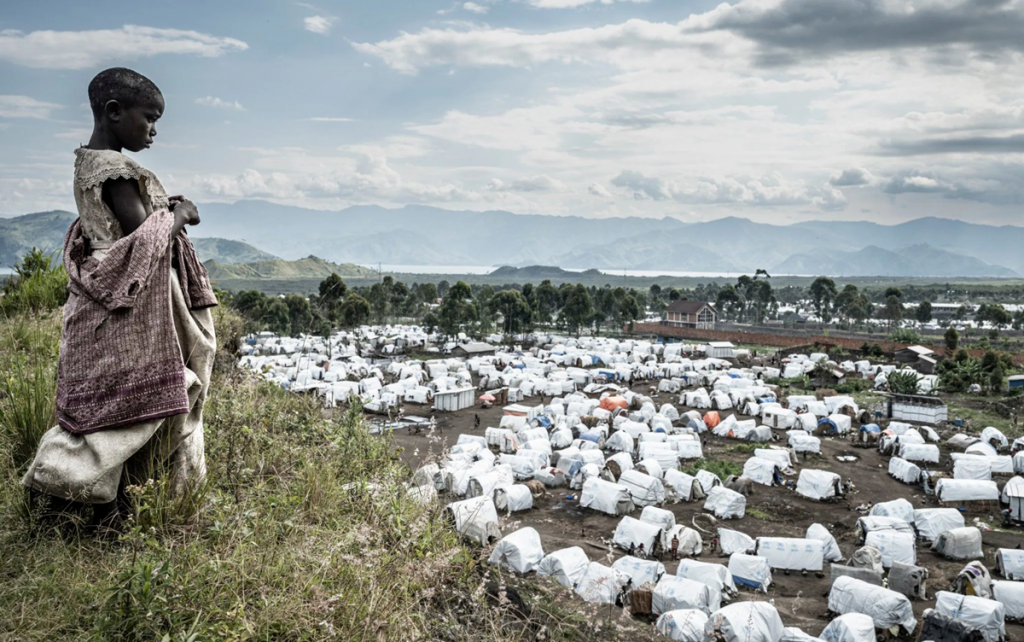The scars from the Mpox pustules can still be seen on seven-year-old Grace Kabuo’s face, as well as on a few of her friends at a camp for displaced individuals close to Goma in the Democratic Republic of Congo.
Grace has fully recuperated from the virus. Denise Kahindo, her mother, remains uncertain about how her daughter contracted the infection earlier this month.
“I just helplessly noticed the symptoms on her body,” she said.
For disease experts, Grace’s case epitomises a fresh worry regarding Mpox, a virus identified over 50 years ago. Her infection stemmed from a new variant showing increased transmissibility compared to earlier strains.
Doctors locally report 130 suspected cases of Mpox in the past four weeks, predominantly affecting children and adolescents. These cases have been observed at a nearby facility catering to displaced people from the camps.
“50% [of the 130 cases] are even less than five years old,” said Dr Pierre-Olivier Ngadjole, a medical adviser for Medair, a charity helping with treating and transporting patients from the camp near Goma to the nearby medical centre in Munigi.
750,000 individuals have fled to the region due to conflicts between the M23 rebel group and the Congolese government.
Mpox, a contagious infection that can be transmitted through close contact, typically presents as a mild illness but can occasionally result in death.
It manifests in flu-like symptoms and the development of pus-filled lesions on the skin.
The ongoing Mpox outbreak in Congo has resulted in approximately 27,000 reported cases and has claimed over 1,100 lives, particularly affecting children, since the start of 2023.

The outbreak initially began with the transmission of an endemic strain referred to as Clade I, but a new variant, Clade Ib, has shown increased transmissibility through routine close contact, particularly among children.
Another variant of Mpox, Clade IIb, caused a global health emergency in 2022, primarily spreading through sexual contact among men who have sex with men.
Health authorities in the United States and Europe initiated campaigns to promote safe sexual practices and vaccinated high-risk populations to mitigate the spread.
In Congo, no vaccines or specific treatments are readily available for Mpox outside of clinical trials.
Challenges such as stigma, regulatory obstacles, lack of funds, as well as outbreaks of measles and cholera in displacement camps have hindered access to medical resources, particularly in densely populated areas.
The country recently approved using two Mpox vaccines; however, securing adequate funding remains a significant obstacle.
Only a few nations have offered to donate vaccines to Congo, and international vaccine organisations face barriers in obtaining approval from the World Health Organisation.
At the Munigi treatment centre, some children are isolated in rooms that were previously used during Ebola outbreaks to prevent the spread of Mpox. These children also exhibit lesions on their faces and bodies.


